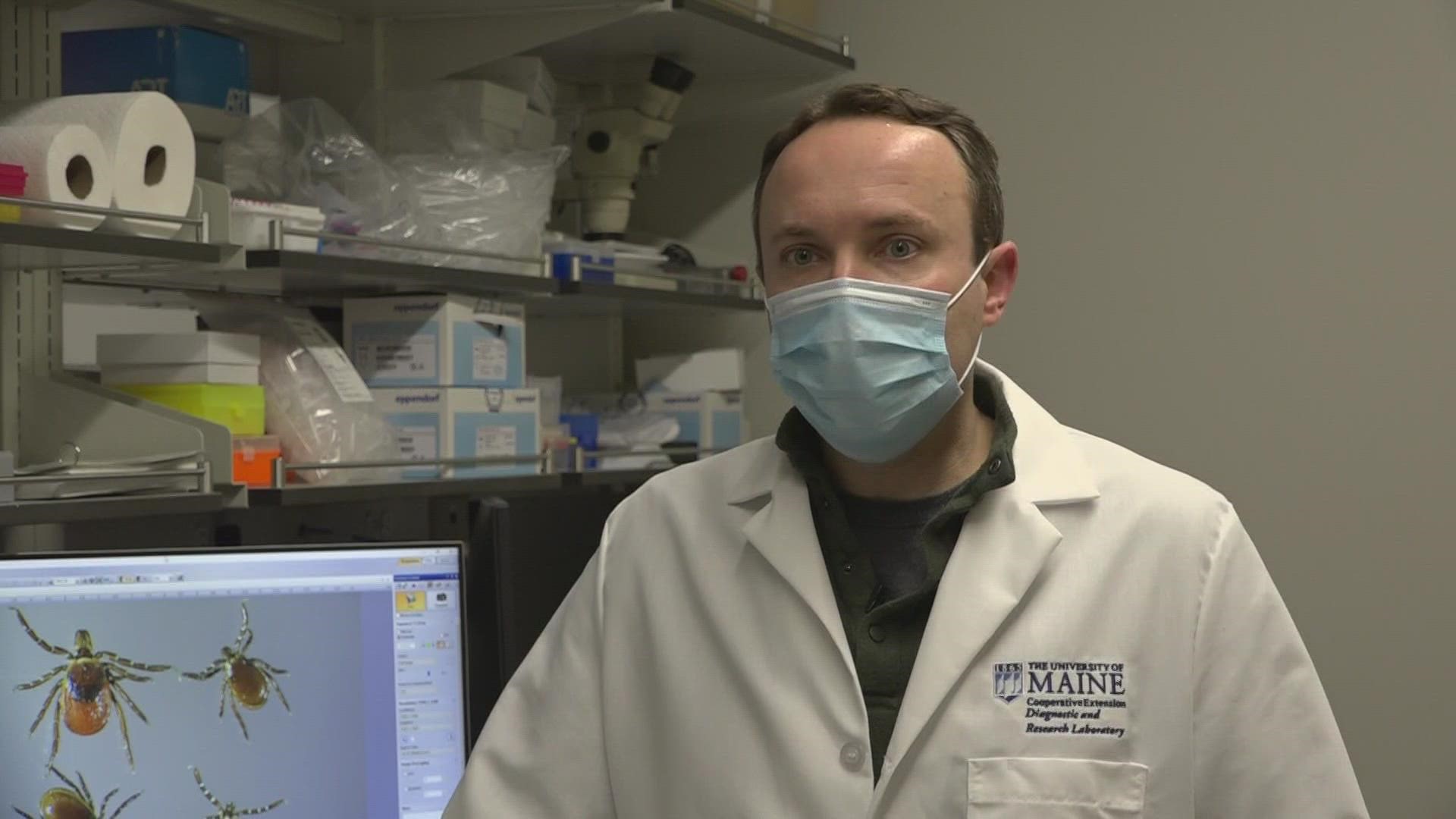ORONO, Maine — Researchers at the University of Maine Cooperative Extension Tick Lab said Lyme disease is just one of the several tick-borne illnesses we're seeing more of in Maine, according to the lab's 2021 Surveillance Program data.
For the 2021 study, the lab received roughly double the amount of tick submissions than it did the year before.
"We're currently testing deer ticks or black-legged ticks as they're also known for the causative agents of Lyme disease, anaplasmosis and babesiosis," Griffin Dill, the Tick Lab coordinator, said.
Dill said those diseases are the three most common tick-borne illnesses in Maine. Researchers there are asking for Mainers to continue sending ticks they may find or come across to the lab for the 2022 study.
Meanwhile, a new study published to the iScience journal shows a glimmer of hope in reducing the number of ticks with diseases like Lyme. Researchers from Penn State, the University of Nevada at Reno, and the University of Maryland were involved in the study.
The researchers involved with the study "determined a method of editing the genetic makeup of the ticks themselves," Dill said.
Editing the genes in ticks had not been possible until now. Dill said these findings may lead scientists to eventually be able to alter the genes in ticks that transmit diseases, like Lyme.
"It really kind of opens up new avenues for research on their physiology and they way they interact with the pathogens they become infected with," Dill said.
This year at the Tick Lab in Orono, Dill and his colleagues are able to look for a fourth pathogen found in ticks known as borrelia miyamotoi, which causes symptoms similar to Lyme disease.
Dill said eventually being able to use gene editing software at the lab would help broaden their abilities to understand ticks here in Maine.

